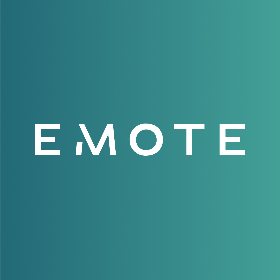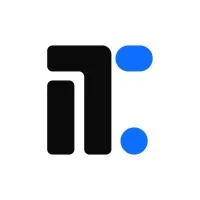
Blockchain in Action: New Era for Digital Marketing
Although blockchain was initially developed as an enabler of digital currencies, the technology continues to expand its applicability across multiple fields that are not directly related to financial services.
The major strength is that it offers a secure, decentralized, and open system for data and transaction management which has boosted its application in different fields. One of the most significant applications of blockchain is in the field of digital payments, which enables direct transactions between consumers and business (B2C) or between businesses (B2B). These transactions are performed through smart contracts and don’t require middlemen which increase the speed and security of transactions as well as increases the profit margins.
However, financial services is not the only way to apply blockchain technologies in the modern digital environment. Supply chain management is also greatly facilitated by blockchain since it allows companies to track their products from the supplier to the customers. This helps to minimize fraud, retain brand image, and cultivate customer trust and loyalty. In marketing, the technology has been useful in guaranteeing data security and privacy. For example, survey conducted by Gartner indicated that adopting blockchain technology in marketing initiatives has positively impacted over 97 organizations over various industries. Moreover, it is predicted that the global market of blockchain in media, advertising, and entertainment industries will be around $40 billion by 2031. Thus, as more industries implement blockchain into their processes, it is expected to improve conventional structures of business by offering enhanced productivity, protection, and openness.
Thus, blockchain remains flexible in different use cases which are described in more detail at gamified.marketing and it will remain a key enabler of innovation and growth in the global economy.
Blockchain in Marketing: An Overview
In the context of blockchain, traceability can be understood as the capacity to track the history of a particular transaction within the network. Blockchain is a time-ordered system where blocks are linked to each other; thus, the detailed transaction information can be used for tracking purposes. This genuine transparency makes it easy for all the members of the blockchain network to watch and analyze the transactions as they are recorded in the network. In turn, this increases the chances of detecting and excluding potentially fraudulent transactions, thus enhancing transparency and the development of a secure network among its members. Moreover, the distribution of the blockchain means that no data can be changed without the approval of all the parties. This characteristic creates trust, strengthens security, and protects against threats from within and outside the organization.
The immutability of blockchain goes further in ensuring that the records of the transactions remain fixed and unchangeable in the future. After a transaction has been incorporated in a block, it cannot be changed or removed, which maintains the data’s authenticity. This feature makes blockchain especially useful in such industries like finance and cryptocurrencies where accuracy and security of data are critical. Such industries were the first to adopt this new technology since it offers a secure, decentralized, and transparent environment. In digital marketing, blockchain applies its functions to change the way customer information is processed by providing the consumers with control over their information. Decentralized data storage and processing enable people to give consent to businesses and use their data only for specific marketing purposes.
Impact of Blockchain on Marketing
How Does Blockchain Affect Advertising?
A blockchain development company can help digital advertising benefit from blockchain’s transparency and efficiency, including eliminating click fraud and ensuring appropriate use of ad funds. It also increases security and makes the targeting of users in an advert to be more precise since it provides accurate information of who actually visits an advert and how they react.
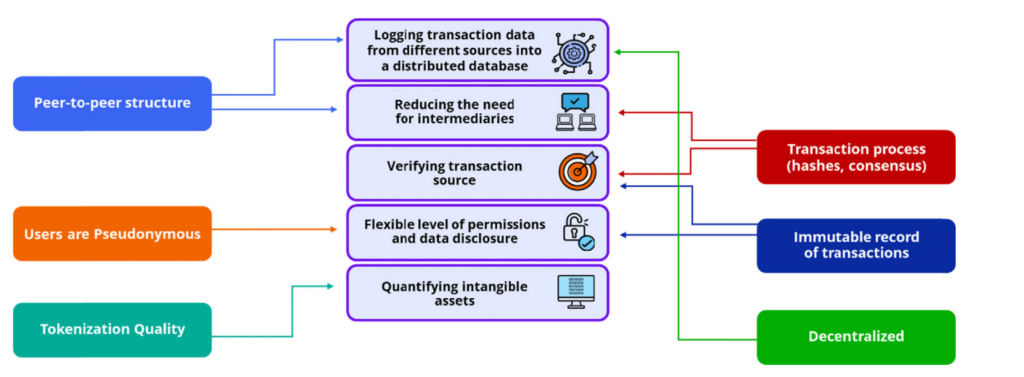
This new approach could help address several key challenges and questions in the advertising industry:
1. Understanding Cross-Platform Continuity: One of the challenges which many advertisers find difficult to solve is the shift in consumer behavior as influenced by exposure across different platforms. The use of blockchain can give advertisers real-time details of exposure on one platform that affect engagement on another; making the work of the different platforms more coherent.
2. Tracking the Chain of Exposures: Blockchain technology is capable of ensuring better understanding of the challenges and trends associated with reaching out to the target audience. The nodes created in the blockchain can help answer such questions as ‘Are there certain people who respond to an ad only after the third exposure while others respond more quickly?’, ‘Does exposure to an ad of a certain brand influence the response to subsequent ads for other brands? Other product categories?’, ‘Are there certain groups of exposure-resistant customers and what are their characteristics?’. The blockchain can provide more detailed information on the customer behavior by means of accurate time stamps in the blockchain.
3. Measuring the Return on Influencer Investment: Influencer marketing is one of the forms of marketing in which brands directly communicate with the consumer through influencers. Nevertheless, it can still be challenging to figure out the way of providing fair compensation for influencers’ posts and which factors to take into account. It can be solved by using blockchain technology because it can provide brands with better measurement of audience interaction with posts. Such tool can provide brands with better value for money from their investment in influencer marketing.
4. Analyzing the Hierarchy of Effects: Blockchain can also provide a way to analyze consumers’ response to the advertisements. Tokenization of users’ attention allows advertisers to define and measure actions during a customer journey from ad exposure to purchase. This deeper analysis enables advertisers to determine the effectiveness of the messages they give with regards to the consumer decision making process.
The use of blockchain technology in advertising is a game-changer due to the immense amount of information it can gather and store regarding the ad performance and customer behavior. Whether it is better targeting, better influencer marketing or better cross-platform measurement, blockchain has tools that allow advertisers to get the most out of advertising.
The Role of Blockchain in Brand Equity
According to the article ‘How Can Non-Fungible Tokens bring value to brands’ by A.Colicev, from a branding point of view, blockchain technology has the number of benefits. For example, brand assets, liabilities, and elements can be recorded and exchanged via non-fungible tokens (NFTs). This also means that NFTs can be represented as objects that exist separately from the Metaverse, being stored, used, and traded within its environment.
Brand usage of royalties and permissions can be facilitated through NFTs and priced more easily. Also, it is mentioned that brands can build online communities on their blockchain, where members’ content, including text, photos, videos, and music, can be sold. The role of blockchain in increasing brand exposure reinvents customer relationships. It links multiple stakeholders, providing incentives for customers to contribute and generating reliable content. The key to this customer-oriented approach is trust. Blockchain technology can support the increased transparency and security of marketing processes, which is essential for strengthening customer trust and ensures better marketing results.
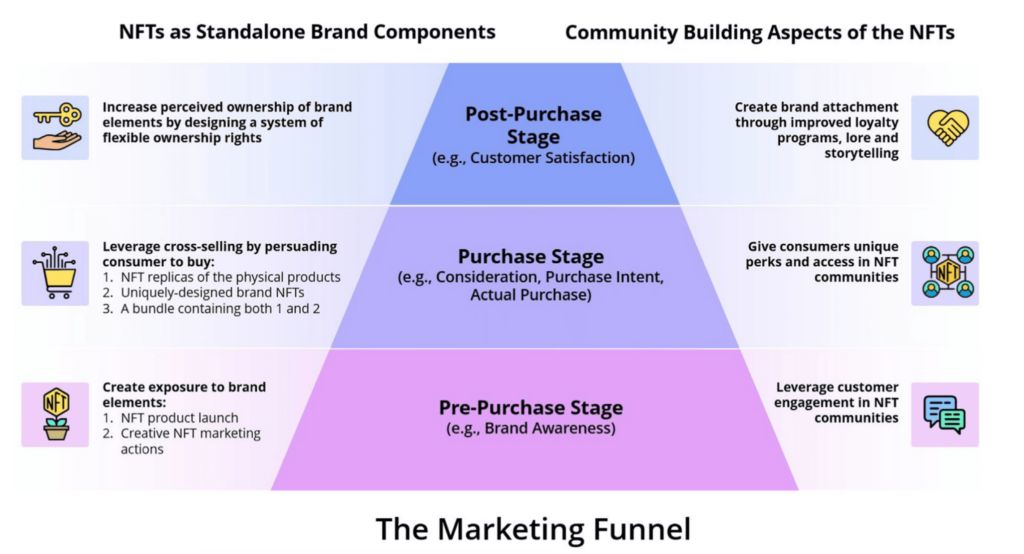
Blockchain-Enabled Loyalty Programs and Rewards
Blockchain technology opens up new possibilities to improve shopping, loyalty programs, and rewards. Research has revealed that the application of this technology enhances customer interaction, loyalty and retention as well as brand reputation. The use of blockchain technology helps create more flexible, secure, and affordable loyalty systems by tokenizing the rewards. Tokens are flexible and liquid, and customers can sell or exchange them for other products, thus increasing interaction and overall interest in participating.
Traditional loyalty programs often face such challenges as lack of transparency and limited interoperability between different programs. As fort the blockchain-enabled loyalty programs, they can provide secure, transparent and efficient reward processes. Moreover, loyalty tokens can be created in such a way that members can use them to earn and redeem rewards not only in a particular shop, but across brands. This can open new possibilities in the area of customer rewards.
Smart contracts are equally important for maintaining the authenticity of the blockchain-based loyalty program. These smart contracts automate the process of the reward distribution, thus avoiding external interference and potential manipulations. In addition, smart contracts make it possible to monitor customer engagement in real-time and verify all interactions so that rewards can be adequately credited. Also, due to the decentralized structure of the blockchain, there is no need to involve middlemen in the payouts of the rewards, which saves costs and time.
The blockchain technology can help loyalty programs to overcome some of the challenges that are associated with the traditional ones. It provides a vast range of opportunities that can enhance the engagement of customers and the effectiveness of business strategies.
Advantages Of Blockchain For Advertisements
Advertising industry can benefit from technological advancement in many different aspects. When it comes to the blockchain, it can have a positive impact on such areas of advertising as transparency, fraud prevention, trust building, efficiency and cost reduction.

1. Transparency
Blockchain provides equal openness of the advertising ecosystem’s transactions for all participants, therefore promoting transparency in all the transactions. Advertisers can see exactly where their ads are placed, how many genuine impressions or clicks their ads receive, and how their budget is allocated across the supply chain.
Blockchain achieves this through several mechanisms:
Transparent Ledger: By recording all ad transactions starting from placement orders to engagement metrics, blockchain gives real-time access to all the information about an ad. It provides advertisers with information about where their budget is spent and how their ads are performing.
Smart Contracts for Ad Delivery: Currently, through the use of smart contracts which are self-executing agreements in code, the process of ad delivery can be automated. They are done only when verifiable conditions are met, for instance, when an advert is to be viewed by a real user which leads to an improved accountability.
Decentralized Verification: Several nodes can verify ad transactions, thus decentralizing the process, increasing authenticity and making it difficult for a single party to manipulate the process.
Supply Chain Visibility: Advertisers are able to track the entire process of creating an advertisement and placing it in the appropriate channel. They are also able to see the conditions under which their ads are placed to help them counter fraudulent activities and ensure a brand’s safety.
Audit Trails: The blockchain technology is immutable which means that any transaction made in the system will be recorded permanently and can be used for their verification.
2. Fraud Prevention
As described earlier, one of the major strengths of blockchain is that it is resistant to modifications which means that once a transaction is recorded in the blockchain, it cannot be changed. It is essential in checking all forms of fraud in digital advertising. This feature makes it possible to check genuine clicks, views, and users’ interactions. Blockchain can eliminate fake interactions such as bot traffic by creating an immutable ledger of ad interactions. It is especially important if taking into account that ad fraud cost advertisers 84 billion dollars in 2023.
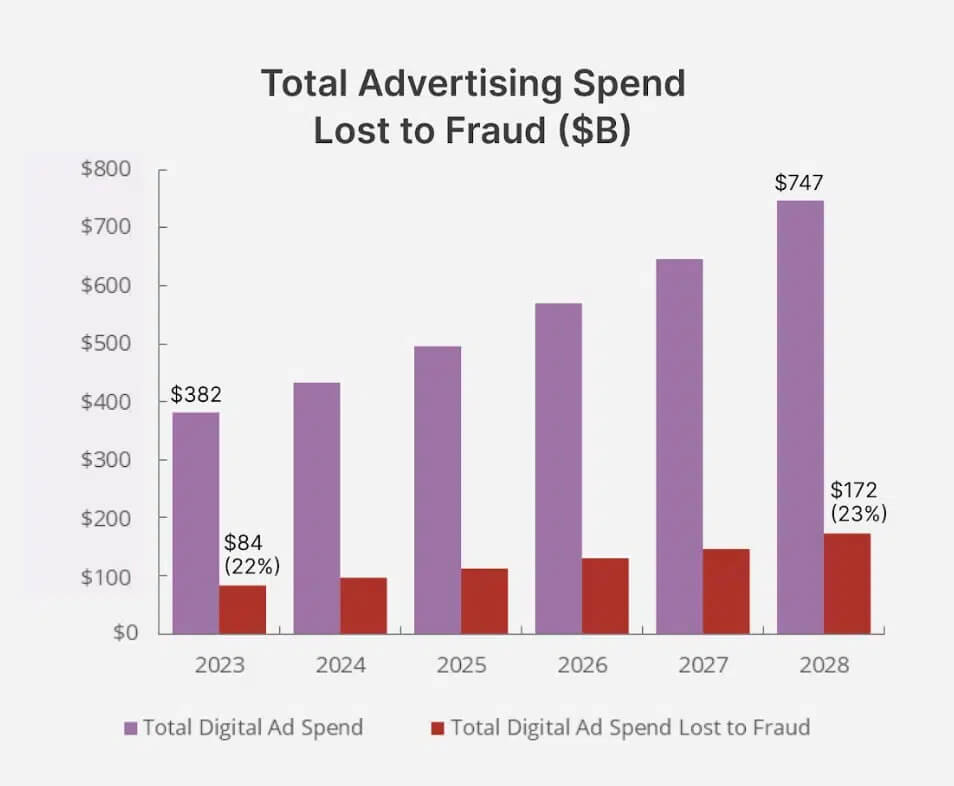
Fraud prevention in blockchain is facilitated by:
Immutable Record Keeping: After an ad impression or click has been recorded in the blockchain, it cannot be changed which reduces cases of fraud.
Smart Contracts for Automated Verification: These contracts can be programmed to check clicks and impressions against certain criteria such as the unique user signatures or unique interaction patterns that distinguish a human user from a bot. It also minimizes the possibility of manual interference and manipulating the process.
Decentralized Verification: By using a network of nodes for the verification process, blockchain decreases dependency on a single authority that can be compromised. Thus, it makes fraudulent activity to be very difficult to be done.
Transparency and Auditability: The transparency of the blockchain also enables advertisers to check their ad journey in real-time, which significantly reduces the chances of fraud impressions and clicks.
Moreover, blockchain is not only useful in preventing advertising fraud, but it can also be used to deal with counterfeiting in such sectors as luxury goods and drugs. Since blockchain records information on the movement of the products from producers to consumers on a digital platform, it can guarantee the authenticity of products to eliminate fakes and fraudsters’ activities that are detrimental to the brands and the consumers.
3. Trust Building
Blockchain adds trust in the advertising ecosystem among stakeholders since it provides a single source of truth. Both advertisers and publishers can use data recorded in the blockchain that is transparent and cannot be manipulated. Smart contracts are also used to increase the level of trust by automatically providing payments to publishers when specific agreed-upon criteria are met.
Key mechanisms for building trust include:
Immutability for Verifiable Transactions: Once blockchain transactions are recorded, they cannot be changed, therefore, advertisers can be assured that figures of ad spend reflect genuine user engagement.
Transparency Across the Supply Chain: Blockchain makes it possible to see the ad supply chain and know how much is spent, who is paid, and where the ads are placed, making it easy for the advertisers to know their budgets are used effectively.
Smart Contracts for Automated Fair Compensation: Smart contracts enable payments to be made on the basis of measurable performance thus minimizing contract breaches and maximizing efficiency.
4. Efficiency and Cost Reduction
It is clear that there is a great potential in cutting cost on ad transactions using the blockchain technology since contracts can be self-executed and there is no need to involve middlemen. Smart contracts are also beneficial in the settlement process making it easier and faster to conduct transactions while reducing the paperwork. Blockchain automates multiple processes, which can make ad transactions faster, cheaper, and more efficient.
Examples of Businesses Leveraging Blockchain in Their Marketing Efforts
A number of large corporations in various business sectors are turning to blockchain to increase the credibility, protection, and effectiveness of their marketing and advertisement. Introducing blockchain into these businesses is not only enhancing operations, but also gaining insights, authenticating data, and strengthening customer relations. Here are some examples of how some of the organizations such as IBM, Louis Vuitton, PepsiCo, Nestle, Singapore Airlines, Toyota, and Unilever are using blockchain in their marketing operations.
- American Express has integrated the Hyperledger blockchain to provide reward points to members based on individual products, instead of the spending behavior at a particular merchant.
- Cathay Pacific Asian airline and its rewards program, Asia Miles, have teamed up with Accenture to deploy blockchain technology thus allowing customers, airline partners, and the airline itself to manage air miles and member rewards in real-time with a new cryptocurrency. Cathay Pacific has transformed its air miles benefit scheme by deploying blockchain and mobile devices, combining blockchain and gamification, offering a better experience for their customers.
- The carmaker Toyota and the ad agency Saatchi & Saatchi have partnered with the blockchain-based company Lucidity in a pilot project aimed to utilize the blockchain to verify the authenticity of ad clicks, eliminate wasted spending, and thus optimize the carmaker’s ad campaigns. Through the Lucidity-optimized campaign, Toyota saw a 21% lift in performance – even after optimizations from industry leading fraud and viewability solutions.
- In marketing and advertising, IBM is applying blockchain in its platform, which authenticates the advertising chain supply. In collaboration with the advertising and analytics Mediaocean, IBM brings an end-to-end ledger solution into marketing departments. This system assists businesses to reduce third-party costs and identify a fraudulent data set, enabling organisations to enhance the effectiveness and authenticity of the advertisement transactions.
- Louis Vuitton has adopted the use of blockchain in its operations so as to guarantee the origin of the luxury products. Aura provides a set of integrated solutions such as track & trace and the safeguarding of the data by providing record of product journey since its creation and information on product raw materials origin. Data is immutably encrypted in Aura Consortium Blockchain.
- PepsiCo started working on a pilot called “Project Proton,” which is based on the blockchain technology and designed to match ad impressions across various data sources. The outcome revealed that there was a 28% increase in efficiency of advertising which proved how blockchain can enhance performance of digital advertisements.
- Nestle is employing blockchain to increase the levels of transparency throughout its marketing supply channels. They use an innovative blockchain platform that allows consumers to track their food right back to the farm, which became a groundbreaking move in the food industry. It also demonstrated the openness of the brand towards their consumers.
- Singapore Airlines’ KrisFlyer launched a blockchain-enabled digital wallet for frequent travellers. KrisFlyer is also going to launch a digital wallet for its members where one can use digitized KrisFlyer miles to pay at retail merchants. “Innovation has been a key contributor to the success of Singapore Airlines since Day 1 and we are very excited about this world-first initiative, which will bring even more benefits to members of our KrisFlyer programme,” said Singapore Airlines CEO Goh Choon Phong.
Blockchain technology that was developed for use in cryptocurrencies such as bitcoin has come a long way and is now being applied in other markets as well. Such features like decentralization, transparency and immutability have been considered great advantages in digital payments, supply chain management, marketing and advertising. By facilitating direct, safe and effective deals through smart contracts, blockchain has removed intermediaries, promoted efficiency and introduced a new level of trust between the parties involved.
The use of blockchain in marketing has been attributed to the technology’s ability to offer transparency, secure data, and build trust that has been beneficial to business when it comes to strategizing. This is a technology that is being adopted by major players such as Unilever, IBM, and PepsiCo as a way of tracking their ad spending, fighting fraud and enhancing efficiency of digital advertising. Also, it is now widely implemented by high end brands such as Louis Vuitton and other big players across industries to ensure the authenticity of products and gain the consumers’ trust.
Blockchain has the potential to revolutionize established marketing procedures and benefit both customers and brands. Whether it is enhancing the loyalty programs, making advertisements more relevant, or verifying the originality of products, blockchain’s applicability continues to grow across industries.








